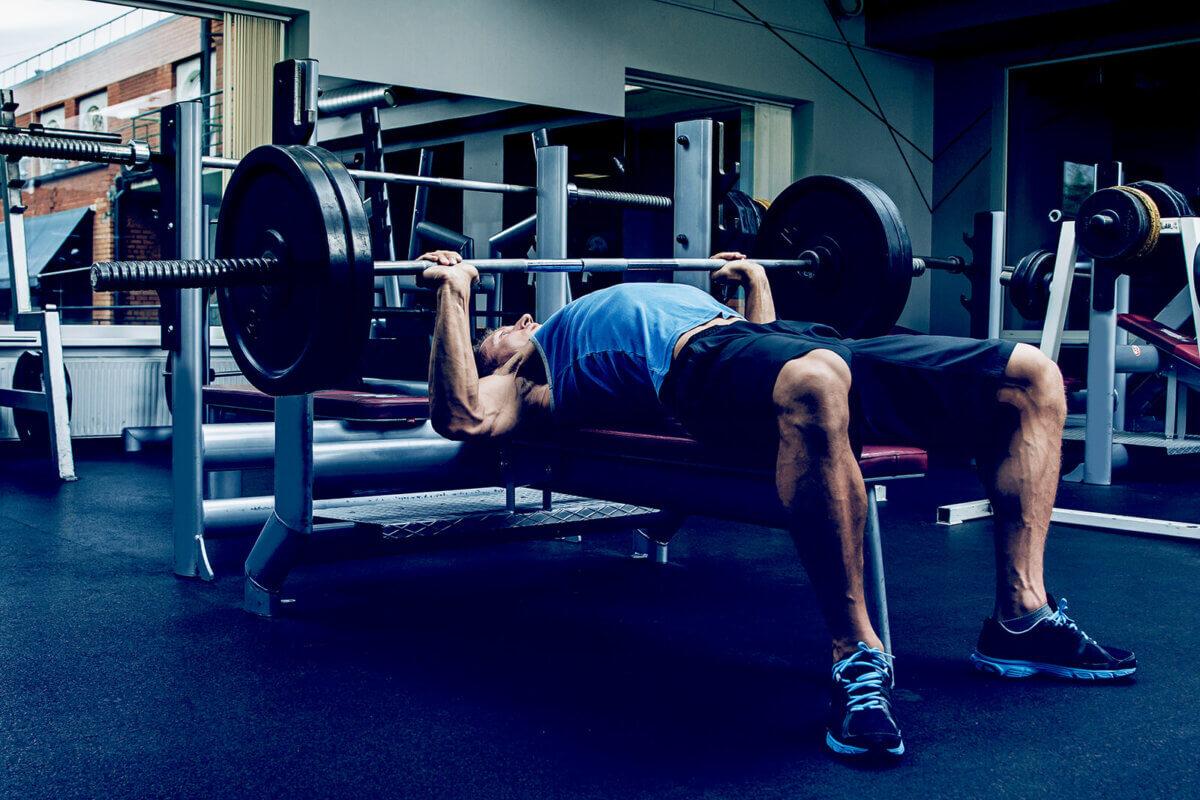
Studies investigating the influence of manipulating training volume to complement nutritional intake are nonexistent. A recent study used some of its data to explore this area of research.
Overview
What did they test? Muscle thickness of the quadriceps was measured before and after a six-week diet in two groups training with different overall training volumes (20 sets vs. 12 sets).
What did they find? Muscle size changed similarly when training with higher training volumes (20 sets x week) compared to moderate training volumes (12 sets x week) during a six-week diet.
What does it mean for you? Training volume shouldn’t always be a linear progression or a “more is better.” Training volume should be tailored and manipulated around the individual's dietary and other lifestyle and behavior habits to maximize the intended goals of that individual.
What’s the Problem?
An effective training program requires an understanding of the interdependent relationship of acute training variables like volume, intensity, frequency, exercise selection, exercise order, intensity of effort, etc. Of the acute training variables, training volume is regarded as the ‘king’ for maximizing muscle growth. But it’s not an end all be all, more volume isn’t always better. Research has shown the relationship between muscle growth and training volume reaches a point of diminishing returns whereby more volume could mean less muscle growth. Increasing the confusion for most people, we also know you need to progress over time in some fashion. Whether that’s increases in the number of sets for an exercise or increase in the total amount of weight you’re lifting, or maybe by simply performing more repetitions with the same weight. Identifying the fine line of maximal growth and training volume is the constant debate and struggle for most in the fitness industry. While arguments and debates over optimal training volume or a specific “hypertrophy rep zone”, the reality is they cannot be easily separated or viewed in isolation because they influence each other. When you see studies published investigating training variables, it’s nearly impossible to try and account and measure each training variable in isolation. Especially since these are usually free-living college students, there’s many sources of error and factors that can reduce the validity of a study’s findings. Nevertheless using the available data, we have while comparing certain details, we can have a clearer picture of what’s going on. One group of researchers recently used some of their data from a previous study to help provide some insight into this area of training volume and muscle growth.

While there is quite a bit of data regarding resistance training volume for building muscle, there is a dearth of information available regarding optimal training volume while specifically in a caloric deficit undergoing weight loss. Most available studies examining volume do not control for nutrition or they do not specifically examine training volume while undergoing weight loss 2 3 4 5. It has been postulated by some that resistance training volume should decrease while undergoing weight loss since recovery may be negatively impacted due to weight loss. Indeed, research demonstrates that basal levels of skeletal muscle protein synthesis (MPS) are reduced under conditions of caloric restriction and may impair muscle growth 6 7. Yet others have used the same information to postulate that training volume should be increased as it is the most powerful stimulus for lean mass accrual and retention. Yet others have hypothesized that training volume should not change during energy restriction as simply maintaining training volume could be adequate to maximize lean mass retention, but too much training volume may negatively impact recovery and lead to overtraining. Thanks to investigators we have some data that we can use to see the picture through a clearer lens.
Purpose & Hypothesis
Researchers were primarily interested in comparing two different training programs during a diet. Specifically, they wanted to know if training with more volume would better retain lean body mass. Investigators were also interested in the contractility of muscle tissue during the calorie restriction period. Investigators anticipated higher training volumes would retain the leanest body mass and muscle contractility properties while dieting.
What Did They Test and How?
Participants
There were 47 participants randomized to one of the two training groups. During the study, there were five dropouts for protocol compliance (n =1), injury unrelated to the study (n = 2), time issues (n = 1), and COVID-19 infection (n = 1). There were an additional four participants that were randomized but served in a backup capacity. This resulted in a final total of 38 healthy, trained males, which is exactly the number of participants needed for statistical significance as calculated by researchers.
If you would like to continue reading...
Reps: A Biolayne Research Review
Only $12.99 per month
- Stay up to date with monthly reviews of the latest nutrition and exercise research translated into articles that are easy for anyone to understand.
- Receive a free copy of How To Read Research, A Biolayne Guide
- Learn the facts from simplified research
About the author

Jaymes Longstrom
Jaymes holds a Bachelor’s and a Master’s Degree in Exercise Science. Jaymes has coordinated and published several research studies during his graduate career at the University of South Florida, under the supervision of Dr. Bill Campbell. As a co-author of REPS, Jaymes uses his years of practical experience from coaching and competing to explain research...[Continue]
More From Jaymes




